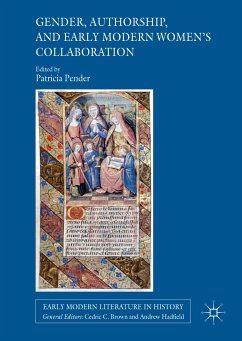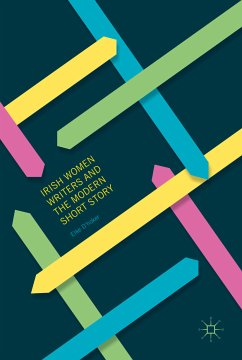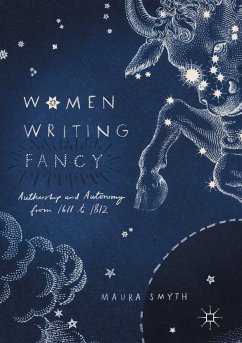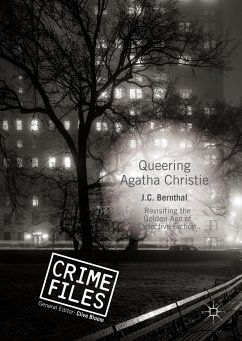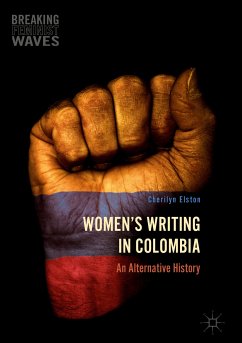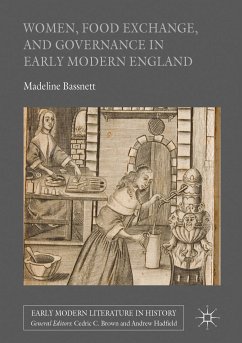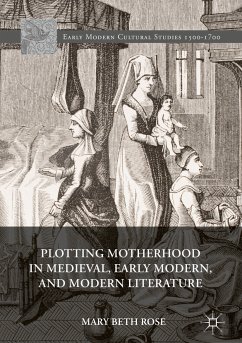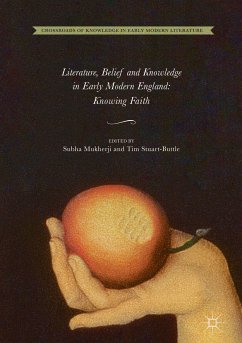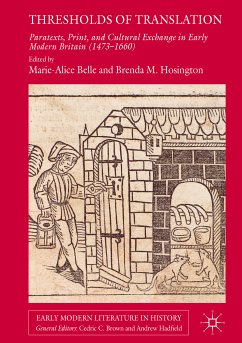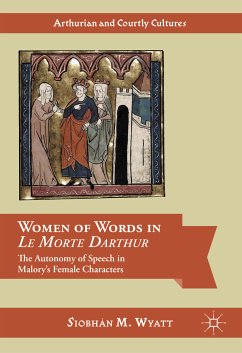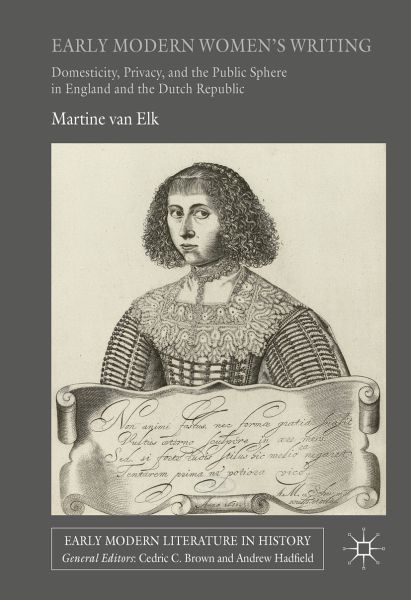
Martine van Elk
eBook, PDF
Early Modern Women's Writing (eBook, PDF)
Domesticity, Privacy, and the Public Sphere in England and the Dutch Republic

PAYBACK Punkte
26 °P sammeln!






Early Modern Women's Writing (eBook, PDF)
Dieser Download kann aus rechtlichen Gründen nur mit Rechnungsadresse in A, B, BG, CY, CZ, D, DK, EW, E, FIN, F, GR, HR, H, IRL, I, LT, L, LR, M, NL, PL, P, R, S, SLO, SK ausgeliefert werden.
Martine van Elk is Professor of English at California State University, Long Beach, USA. She has published extensively on Shakespeare, early modern vagrants, and early modern English and Dutch women writers.
Produktdetails
- Verlag: Springer International Publishing
- Seitenzahl: 299
- Erscheinungstermin: 9. Januar 2017
- Englisch
- ISBN-13: 9783319332222
- Artikelnr.: 53034076
"The book is a timely contribution to the growing body of work on the various political and literary connections forged between Britain and the Dutch Republic during this turbulent period of sometimes violent political conflict and debate for both polities. ... the book has to offer to scholars and students interested in early modern women's writing or transnational literary cultures more generally." (Catharine Gray, Early Modern Women Journal, Vol. 14 (1), 2019)
"Van Elk's well-written and well-documented monograph is an inspiring incentive for more of this kind of research and is highly recommended for anyone interested in transnational relations and early modern female authorship." (Sophie Reinders, Women's Writing, July,
"Van Elk's well-written and well-documented monograph is an inspiring incentive for more of this kind of research and is highly recommended for anyone interested in transnational relations and early modern female authorship." (Sophie Reinders, Women's Writing, July,
Mehr anzeigen
2018)
"This stimulating study offers the first book-length analysis of selected seventeenth-century English and Dutch women writers paired together or in groups; it thus exemplifies current interest in transnationalism, translation, and cross-cultural comparison. ... Well organized, skillfully written, and amply documented, Martine van Elk's study is an important contribution to the burgeoning field of transnational scholarship." (Anne R. Larsen, Journal of British Studies, Vol. 57 (2), April, 2018)
"The originality of this work lies in its wide scope. ... Those scholars of gender studies and early modern women writers who share this evaluation, and those ready to let themselves be persuaded, should read Early Modern Women's Writing. At the very least, this study brings Dutch sources under the attention of an international audience by presenting them side by side with their English 'counterparts'." (Lotte Fikkers, Journal of the Nothern Renaissance, northernrenaissance.org, February, 2018)
"Martine van Elk's rich and eclectic study compares Dutch and English women writers working at a time when an ideology of domesticity emerged, with the public and private spheres gradually but irreversibly separating. ...Van Elk's monograph offers an important assessment of how women on both sides of the narrow seas sought public recognition of their artistic skill." (Nadine Akkerman, Renaissance Quarterly, Vol. 71 (2), 2018)
"Early Modern Women's Writing ... is an important accomplishment because it incorporates the understudied works of Dutch female authors in an argument aimed to intervene in English-language debates. It invites further reading and analysis of all the texts that have been (re-)discovered over the last few decades and relates them to topical research questions on themes such as literature and politics, book history, and self-representation." (Nina Geerdink, Early Modern Low Countries, Vol. 2 (01), 2018)
"This stimulating study offers the first book-length analysis of selected seventeenth-century English and Dutch women writers paired together or in groups; it thus exemplifies current interest in transnationalism, translation, and cross-cultural comparison. ... Well organized, skillfully written, and amply documented, Martine van Elk's study is an important contribution to the burgeoning field of transnational scholarship." (Anne R. Larsen, Journal of British Studies, Vol. 57 (2), April, 2018)
"The originality of this work lies in its wide scope. ... Those scholars of gender studies and early modern women writers who share this evaluation, and those ready to let themselves be persuaded, should read Early Modern Women's Writing. At the very least, this study brings Dutch sources under the attention of an international audience by presenting them side by side with their English 'counterparts'." (Lotte Fikkers, Journal of the Nothern Renaissance, northernrenaissance.org, February, 2018)
"Martine van Elk's rich and eclectic study compares Dutch and English women writers working at a time when an ideology of domesticity emerged, with the public and private spheres gradually but irreversibly separating. ...Van Elk's monograph offers an important assessment of how women on both sides of the narrow seas sought public recognition of their artistic skill." (Nadine Akkerman, Renaissance Quarterly, Vol. 71 (2), 2018)
"Early Modern Women's Writing ... is an important accomplishment because it incorporates the understudied works of Dutch female authors in an argument aimed to intervene in English-language debates. It invites further reading and analysis of all the texts that have been (re-)discovered over the last few decades and relates them to topical research questions on themes such as literature and politics, book history, and self-representation." (Nina Geerdink, Early Modern Low Countries, Vol. 2 (01), 2018)
Schließen
Für dieses Produkt wurde noch keine Bewertung abgegeben. Wir würden uns sehr freuen, wenn du die erste Bewertung schreibst!
Eine Bewertung schreiben
Eine Bewertung schreiben
Andere Kunden interessierten sich für


